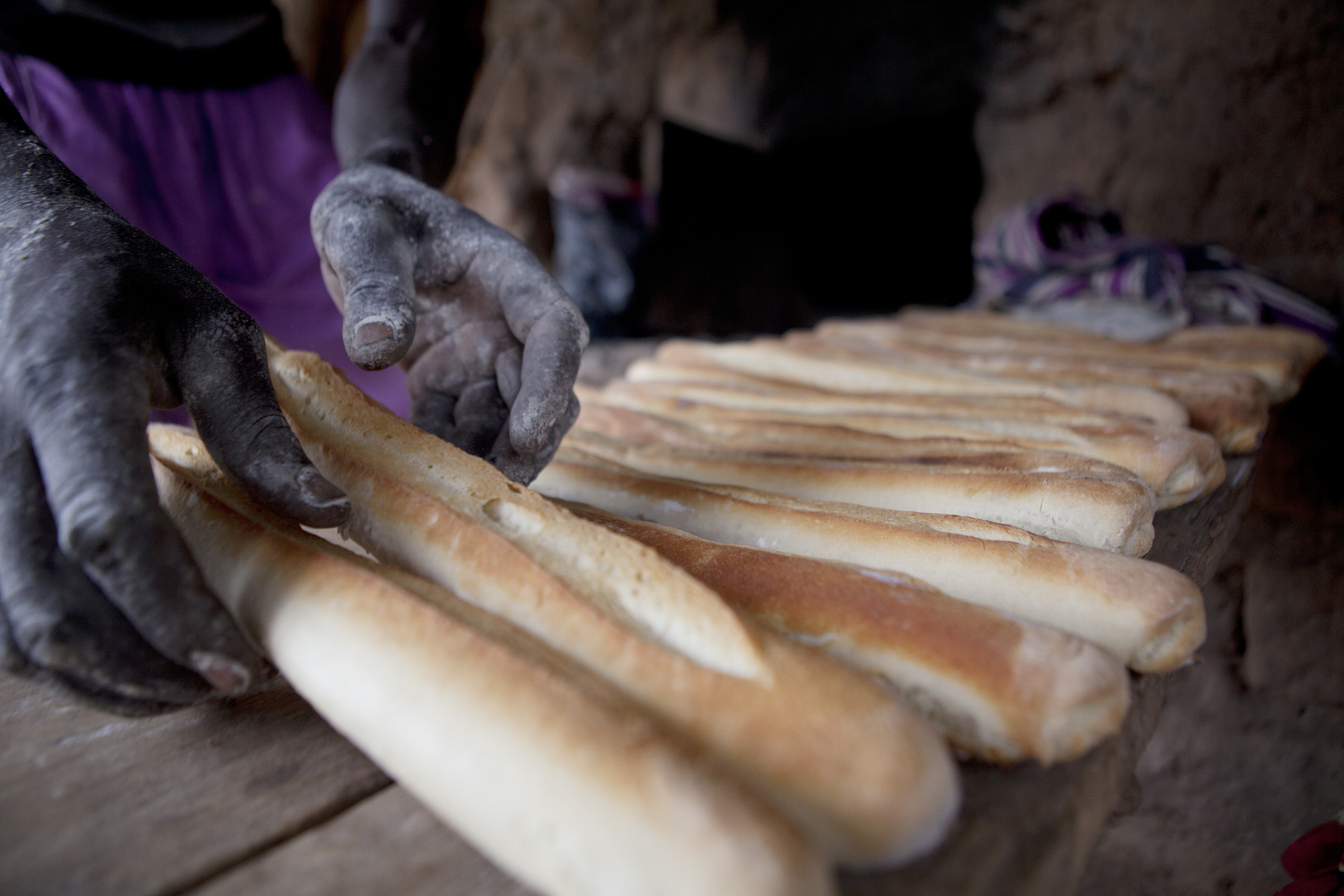An entrepreneurial couple in Senegal invests money from groundnuts into bread for their village.
Written by Fatou Ndour, Oxfam’s communication and campaign officer in Senegal.
On a beautiful spring morning, Ngouda Keita is kneading dough at his home. “My grandfather taught me to bake bread, and I always dreamed of being a baker,” he says. In 2013, with money his wife Penda Ndiaye earned buying and selling groundnuts in the village, they built a new wood-fired oven at their home, and invested in some flour. That got them started.
Running a bakery has been a big change for Keita and Ndiaye. The couple and their eight children used to survive on growing groundnuts, millet, and beans, most of which they ate. To earn cash, which every family needs to buy clothing and pay doctor bills, Keita sold firewood he gathered in the forest near their home, a village called Pakirane, in Senegal’s eastern province of Tambacounda. “That permitted us to have a little income, but not enough to meet our needs,” Ndiaye says.

Three years ago, Ndiaye joined a Saving for Change group that Oxfam’s local partner La Lumiere organized in Pakirane. “The women meet every Monday afternoon,” says Awa Ndao, who works for Oxfam’s partner La Lumière in the Koussanar district, which includes Pakirane. Ndao says they each save about 100 francs, or 20 cents, each week. “Today each member can get a loan of up to about 13,000 francs [about $26], at 10 percent interest rate,” says Ndiaye. “Many women have started small businesses thanks to this initiative; they sell vegetables and spices, or buy groundnuts and press them for oil people can buy.”
Ndiaye used what she learned in business training sessions in her Saving for Change group meetings to take out a series of small loans to amass the capital to set up the bakery, and help her husband achieve his dream of becoming a baker. It’s an unusual business relationship between a wife and a husband in a Muslim country, but the couple is focused on the success of the venture, as their new business has led to a significant improvement in their standard of living. “Since we started the bakery, we have saved enough to buy farm equipment and a horse to work our land, some sheep, and goats,” Ndiaye says. “We bought school supplies and covered our family’s medical expenses. We can also buy some rice and other staples to feed our family that we couldn’t buy before.”

Bakery heating up
The bakery is a collaborative business: Keita gets the oven started, mixes the water and flour to make dough, and shapes the loaves. They bake the loaves and Ndiaye sells the bread and handles the financing through the Saving for Change group.
On regular days, Keita says they go through 30 to 40 kilos (66 to 88 pounds) of flour, and clear about 5,000 francs (about $10) per day in profit. “On holidays and during Ramadan, I use 100 kilos [220 pounds] of flour and we make a profit of more than 10,000 francs [$20].”

This bakery is not just a boon for Keita and Ndiaye, it’s a positive addition for the 600 people in Pakirane. Their neighbors now have a source of fresh bread, only otherwise available by traveling seven kilometers (more than four miles) to the nearby town of Koussanar. “The entire village is proud of the bakery,” Ndiaye says.
With your support, women like Ndiaye are bringing lasting change to their families and communities around the world.
